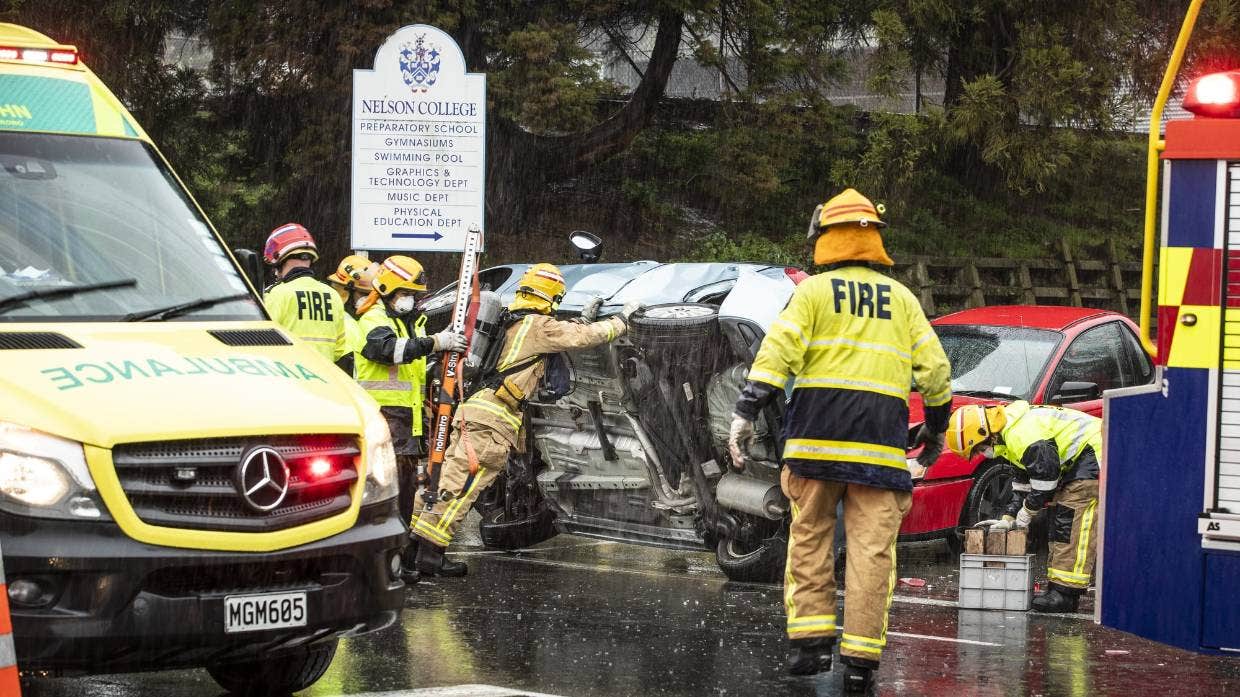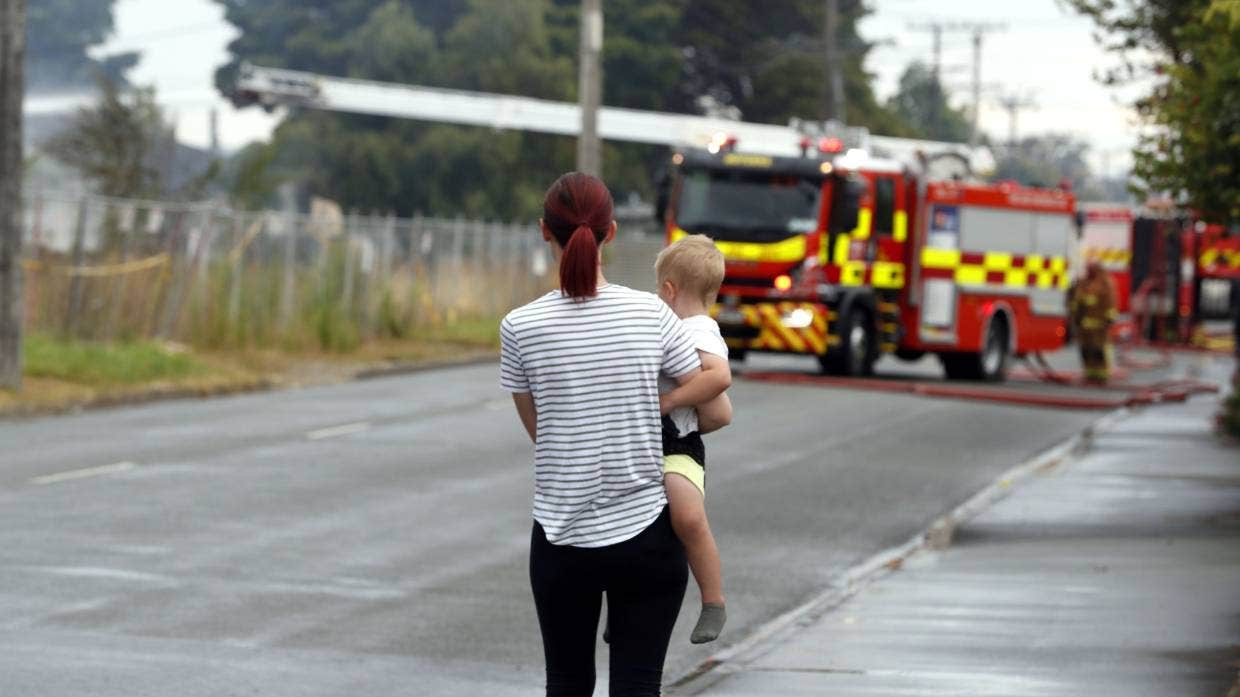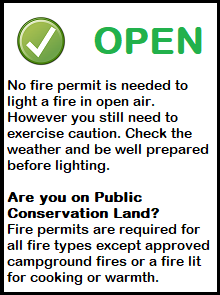Extreme overtime, financial hardship, and mental trauma are the things her husband is forced to deal with, the wife of a firefighter says.
FENZ personnel across the country are currently striking for better working conditions after mediation talks with FENZ stalled, citing broken equipment, extreme overtime, no health insurance, and poor mental health support among the many issues they are facing.
Nelson senior station officer Brodie Macgregor is currently taking part in the strike. He has worked as a firefighter for 19 years.
Macgregor’s wife, Alison Watts, said the experience of being married to a firefighter working for FENZ has been difficult for her.
“It’s hard… I don’t even know where to start.”
Part of this was the overtime her husband worked, Watts said. While it had initially started off as an occasional occurrence, Macgregor was currently having to work overtime at least once a week.
Watts said her husband felt a responsibility to work these hours as he was a dedicated firefighter. However, Macgregor was “beyond exhausted,” and was feeling disillusioned with the job he once loved.
“It’s heartbreaking to see him this way.”
Despite the mental and physical cost of working so many hours, the family was reliant on overtime, as they were finding it harder to cope with the rising costs of food and living. Macgregor’s wages did not reflect this increase at all, Watts said.
“He is underpaid, undervalued, and overworked, and something has to change. We can’t continue this way.”
Macgregor said, in Wellington, he worked 70-80 hour stretches in eight day shifts. In Nelson, he works one additional 14 hour-shift of overtime a week.

BRADEN FASTIER/STUFF
FENZ are often the first to the scene of distressing events, including car crashes and medical call-outs. (file photo)
In Nelson, Macgregor’s rent is half his base salary. An entry level firefighter makes $46,000 a year, which was barely above minimum wage. They made less than FENZ’s lowest paid administrators.
Macgregor said the most important part of the industrial action was, to him, the need for psychological support.
He had attended around 200 medical call-outs a year at his previous job in Wellington, which would often involve entering peoples’ homes and interacting with the patient’s distressed family.
These call-outs took a psychological toll on frontline firefighters. Two years ago, a member of Macgregor’s watch took his own life.
Macgregor had to tell his watch that one of their members had died. The crew wasn’t given any support by FENZ to deal with this, Macgregor said.
FENZ national deputy commander Brendan Nally said, when the member of Macgregor’s watch committed suicide, it was a deeply saddening situation.
Nally himself said he had served with the firefighter, and the time was upsetting for everyone involved.
He said support was offered, including Welfare Officer visits, peer support and individual support for brigade and family members.
“Out of respect of the family, we won’t be commenting on this situation any further.”
Macgregor said while psychological support is offered to firefighters, it relies on “ad hoc” referral. There was no ongoing sort of support, or monitoring for wellbeing.
Macgregor associates this with upper management not being familiar with medical call-outs, instead remembering the days when firefighters mostly attended car accidents.
“The support isn’t enough… the front line is screaming out it’s not.”
Watts said she was kept awake at night by the trauma of what her husband had seen; knowing he had been called out to murders, suicides, infant deaths, and car accidents.
“This is not okay to pile this on real human beings and expect it to have no ill effect.”
While their “fire service family” was a group of men and women who the couple could call on for support, there was nothing from above, Watts said. She fully supported the strike.
“I hope this brings about the change that must happen for all of our sakes.”
Nally said FENZ recognised responding to emergencies could be psychologically demanding. FENZ offered free counselling, and other professional psychological support to its firefighters.
FENZ encouraged all firefighters to use these services, which could be accessed through self-referral or work-place referral, which was FENZ’s safety, health, and wellbeing team.
“We have offered in bargaining to continue to work with New Zealand Professional Firefighter’s Union to improve and develop our support and education further in this area.”
Nelly said the New Zealand Professional Firefighters Union (NZPFU) and FENZ were currently in a process to re-engage constructively in bargaining.



 CHECK ITS ALRIGHT
CHECK ITS ALRIGHT